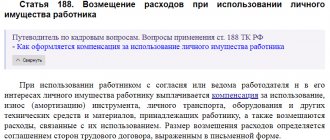ST 338 of the Criminal Code of the Russian Federation.
1. Desertion, that is, unauthorized abandonment of a unit or place of service in order to evade military service, as well as failure to appear for service for the same purposes, is punishable by imprisonment for a term of up to seven years.
2. Desertion with weapons entrusted to the service, as well as desertion committed by a group of persons by prior conspiracy or by an organized group, is punishable by imprisonment for a term of up to ten years. Note. A serviceman who has committed desertion for the first time, as provided for in the first part of this article, may be released from criminal liability if the desertion was the result of a combination of difficult circumstances.
Commentary to Art. 338 Criminal Code
1. The objective side of desertion consists of unauthorized abandonment of a unit or place of service or failure to appear for service. However, unlike the crime provided for in Art. 337 of the Criminal Code, the law does not establish a specific period for unauthorized absence or failure to appear.
2. Since the crime is ongoing, it is characterized by two ending points. Legally, the crime will end from the moment of unauthorized leaving the unit or place of service or failure to appear for service. The actual end of the criminal act will be its suppression by law enforcement agencies or the voluntary surrender of the military personnel. If a person fails to confess or is not detained, the crime also ends due to the loss of the person’s obligations to perform military service. This moment should be considered the person reaching the age after which the specified duties under no circumstances can be assigned to him, or the age that is the limit for being in military service (clause 25 of the Resolution of the Plenum of the Supreme Court of the Russian Federation of April 3, 2008 No. 3 “On the practice of courts considering criminal cases of evasion of conscription for military service and military or alternative civil service”).
3. The subjective side is characterized by the presence of a special goal - to evade military service.
4. The subject of the crime is a soldier performing military service under conscription or contract.
5. Part 2 provides for qualified desertion. Weapons entrusted in service should be understood as weapons that a person lawfully possesses due to the duties of military service assigned to him (for example, weapons issued for duty on guard, in a border patrol guarding the State Border of the Russian Federation).
6. The content of the note is similar to the note to Art. 337 of the Criminal Code, however, a serviceman’s release from liability is possible only if he commits unqualified desertion for the first time.
Article 338. Desertion
- home
- Laws and regulations
- Criminal Code of the Russian Federation
- Article 338. Desertion
1. Desertion, that is, unauthorized abandonment of a unit or place of service in order to evade military service, as well as failure to appear for service for the same purposes,
is punishable by imprisonment for a term of up to seven years.
2. Desertion with weapons entrusted to the service, as well as desertion committed by a group of persons by prior conspiracy or by an organized group, -
is punishable by imprisonment for a term of up to ten years.
Note. A serviceman who has committed desertion for the first time, as provided for in the first part of this article, may be released from criminal liability if the desertion was the result of a combination of difficult circumstances.
Commentary on Article 338
Object
crime is the established procedure for performing military service and fulfilling the obligation to perform military service.
Objective side
The crime consists of unauthorized leaving a unit or place of service in order to evade military service, as well as failure to appear for service for the same purposes.
The concept of unauthorized abandonment of a unit or place of service is given above in the analysis of the crime under Art. 337 of the Criminal Code of the Russian Federation. Although the objective side of unauthorized abandonment of a unit and desertion completely coincide, desertion is a more dangerous attack, since it is aimed at violating the constitutional duty of citizens to defend the Fatherland. The period for which the perpetrator left the military unit without permission or during which he did not report to the military unit or place of service does not affect the qualification of the act. It belongs to the category of continuing crimes, the crime will be completed from the moment of leaving the military unit or failure to appear at the unit or place of service. The crime lasts as long as the perpetrator is illegally outside the military unit or place of service and until this state ceases for any reason (detention, confession, etc.). Confession in such cases does not constitute a voluntary refusal to commit a crime, but is taken into account as a circumstance mitigating punishment.
Desertion for military personnel called up for military service after January 1, 2008 is considered completed from the moment they reach the age of twenty-eight.
For military personnel performing military service under a contract, desertion will be a completed crime once they reach the age limit for military service, depending on their military rank (for example, in the case of desertion by a military personnel with the military rank of captain, the crime will be completed from the moment this person reaches the age forty-five years old).
If the crime provided for in Art. 338 of the Criminal Code of the Russian Federation, due to the disappearance of the person’s corresponding duties, the person’s obligations are over, but at the same time he evades the investigation or trial, the running of the statute of limitations is suspended. In this case, the running of the statute of limitations is resumed from the moment of detention of the specified person or his surrender (Part 3 of Article 78 of the Criminal Code of the Russian Federation).
Subjective side
desertion is characterized by direct intent. A mandatory feature of the subjective side of this crime is the presence of a goal of evading military service, i.e. avoid passing it altogether.
If such a goal appeared in a serviceman after leaving his unit (place of service) without permission, the act should be qualified only as desertion.
Intent to desert may be evidenced by such circumstances as the acquisition or production by a person of false identification documents or evidence that the citizen has served the statutory period of military service or has a deferment from conscription, employment, etc.
Subject
special crime - military personnel.
Responsibility for committing a crime under Art. 338 of the Criminal Code of the Russian Federation, can be carried by military personnel undergoing military service by conscription or on a voluntary basis (under contract), as well as citizens in the reserve during their military training. To recognize individuals as subjects of these crimes, it is important to establish in relation to their initial and final moments of military service (military training) (see also the commentary to Article 337 of the Criminal Code of the Russian Federation).
A serviceman to whom a preventive measure in the form of detention was applied in connection with a criminal case and who escaped from custody cannot be recognized as a subject of desertion, since in this case the serviceman is excluded from the sphere of military legal relations from the moment of detention.
But the subject of desertion is a serviceman who is serving a sentence in the form of detention in a disciplinary military unit, since serving a sentence is not a preventive measure and leaving a military unit should be regarded as a military crime.
A qualified crime is the commission of desertion with a weapon entrusted in the service, as well as desertion committed by a group of persons by prior conspiracy or by an organized group (Part 2 of Article 338 of the Criminal Code of the Russian Federation).
Weapons entrusted in service (Part 2 of Article 338 of the Criminal Code of the Russian Federation) should be understood as weapons that a person lawfully possesses due to the duties of military service assigned to him (for example, weapons issued for duty on guard, in a border security detail State border of the Russian Federation).
Desertion of a serviceman with a weapon entrusted to him in the service, in the absence of signs of its theft, is subject to qualification only under Part 2 of Art. 338 of the Criminal Code of the Russian Federation, and if there are signs of theft - according to the totality of crimes provided for in the relevant part of Art. 226 and part 2 of Art. 338 of the Criminal Code of the Russian Federation.
When qualifying desertion committed by a group of persons by prior conspiracy or by an organized group, it is necessary to take into account the relevant provisions of Art. 35 of the Criminal Code of the Russian Federation.
Desertion is considered committed by a group of persons by prior conspiracy if two or more persons participate in it and have agreed in advance to commit it jointly. If the court does not establish that the persons who simultaneously committed desertion acted jointly and in accordance with a previously reached agreement, what each of them did should be qualified under Part 1 of Art. 338 of the Criminal Code of the Russian Federation in the absence of other qualifying features provided for in Part 2 of Art. 338 of the Criminal Code of the Russian Federation.
If the organizer, instigator or accomplice did not directly participate in the commission of desertion, what the perpetrator did cannot be qualified as a crime committed by a group of persons by prior conspiracy. In these cases, by virtue of Part 3 of Art. 34 of the Criminal Code of the Russian Federation, the actions of an organizer, instigator or accomplice should be qualified with reference to the relevant part of Art. 33 of the Criminal Code of the Russian Federation.
Desertion is recognized as committed by an organized group in cases where it involved a stable group of people who had united in advance to commit desertion. The stability of an organized group can be evidenced, in particular, by such signs as the presence of an organizer (leader), the presence of a pre-developed plan for joint desertion, preliminary preparation (for example, preparing documents, purchasing civilian clothing, determining a place of stay or work), distribution of functions between group members, duration of preparation of this crime.
Several episodes of desertion falling under the criteria of both Part 1 and Part 2 of Art. 338 of the Criminal Code, form a set of crimes and are subject to qualification under both parts of the said article.
Note to Art. 338 of the Criminal Code of the Russian Federation establishes that a serviceman who has committed desertion for the first time, as provided for in Part 1 of this article, may be exempt from criminal liability if the desertion was the result of a combination of difficult circumstances.
The concept of difficult circumstances was given above (see commentary to Article 337 of the Criminal Code of the Russian Federation).
Second commentary to Art. 338 of the Criminal Code of the Russian Federation
1. The crime is completed from the moment of leaving the unit or place of service or failure to appear for service in order to completely evade military service.
2. Desertion is a continuing crime.
3. From the subjective side, desertion is committed with direct intent and with the aim of evading military service.
4. The subject of the crime is a military serviceman performing military service under conscription or contract.
5. Escape from the guardhouse of a serviceman arrested in a disciplinary manner, sentenced to detention in a disciplinary military unit or serving a sentence of arrest (see Article 54 of the Criminal Code of the Russian Federation) is a military offense and, depending on the specific circumstances, can be qualified under Art. Art. 337 or 338 of the Criminal Code.
6. In the event of desertion of a serviceman with a weapon entrusted to him during his service, the act is subject to qualification under Part 2 of Art. 338. If the unlawful taking of a weapon during desertion contains signs of theft of this weapon, then it must be qualified under Art. 226.
7. On the concepts of a group of persons by prior conspiracy and an organized group, see the commentary to Art. 35.
8. The question of the degree of difficult circumstances that can be recognized as a basis for releasing a soldier who committed desertion from criminal liability should be decided taking into account the circumstances listed in the commentary to Art. 337.










